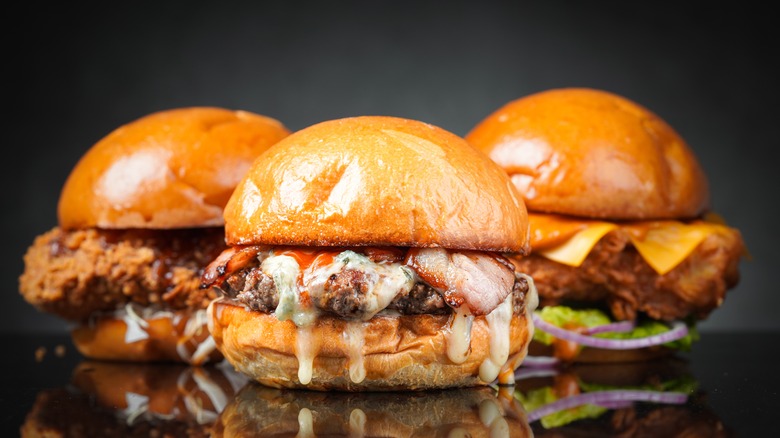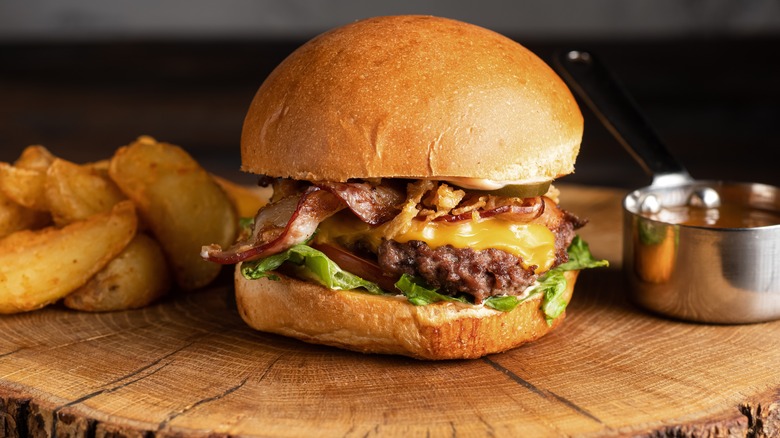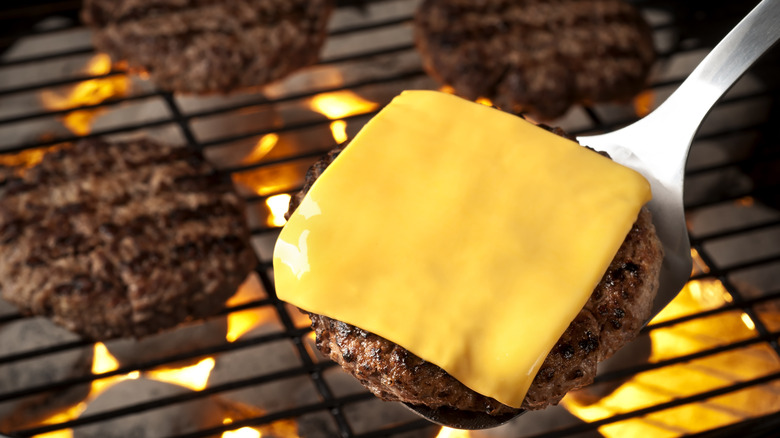Bun Selection Can Make Or Break Your Burger
There's probably no more classic American food item than the humble burger. Sure, fried chicken has its place, as do regional cuisines like the lobster roll, jambalaya, or the Chicago hot dog. But when people think of America, they think of burgers, and there's a good reason for that. The U.S. consumes around 50 billion burgers per year.
While everyone knows a lot of essential things to look for in a burger (there's a reason "big burgers should be wider instead of thicker" is a meme), home cooks often ignore a part of the process that's just as important as the meat itself — the bun. You can't have a burger without a bun (then, you're just dealing with a Salisbury steak). It's even more fundamental to the burger experience than adding cheese or condiments. Bun choice is important, and you don't want to pick some delicate type of bread that's going to disintegrate.
Heartier buns are better at standing up to the meat itself
Burgers are a heavy food. No one ever ate a whole ground beef patty and thought, "Wow, what a light, refreshing appetizer I have just consumed." It stands to reason you're going to want a hearty bun. You don't want an entire loaf of bread on there. If all you're tasting is bun, or if you have to unhinge your jaw like a python to eat it, that's not a great burger experience. Still, you want something that can stand up to the beef.
There are a couple of good options. Brioche buns can work well, and there's a reason you see them so often in restaurants: Their inherent buttery texture gives the burger a rich feel. However, the best choice is also the most classic: a simple potato bun. Potato buns are great because they nail that sweet spot of being strong enough to handle a burger but not so hearty that you feel like your mouth is doing hard labor. Potato buns are the king of burger buns.
There are all sorts of ways to avoid burger mistakes
Picking the right bun isn't the only key to making a great burger at home. In the vein of "don't mess with the classics," American is the ideal burger cheese. Its melt point and texture make it a great match for burgers, whereas something like cheddar will melt unevenly (and the flavor might not work). Don't go overboard on the toppings. Just as wider burgers are better than thicker ones, too many toppings will turn your burger into an absolute mess (and a lot of those flavors are going to disappear anyway). As with steaks, you always want to rest your burgers to let the juices redistribute so you don't wind up with a soggy bun.
If you follow these simple tricks, you're going to be acing your burger exams in no time. When it comes to burgers, the classics are classic for a reason.


